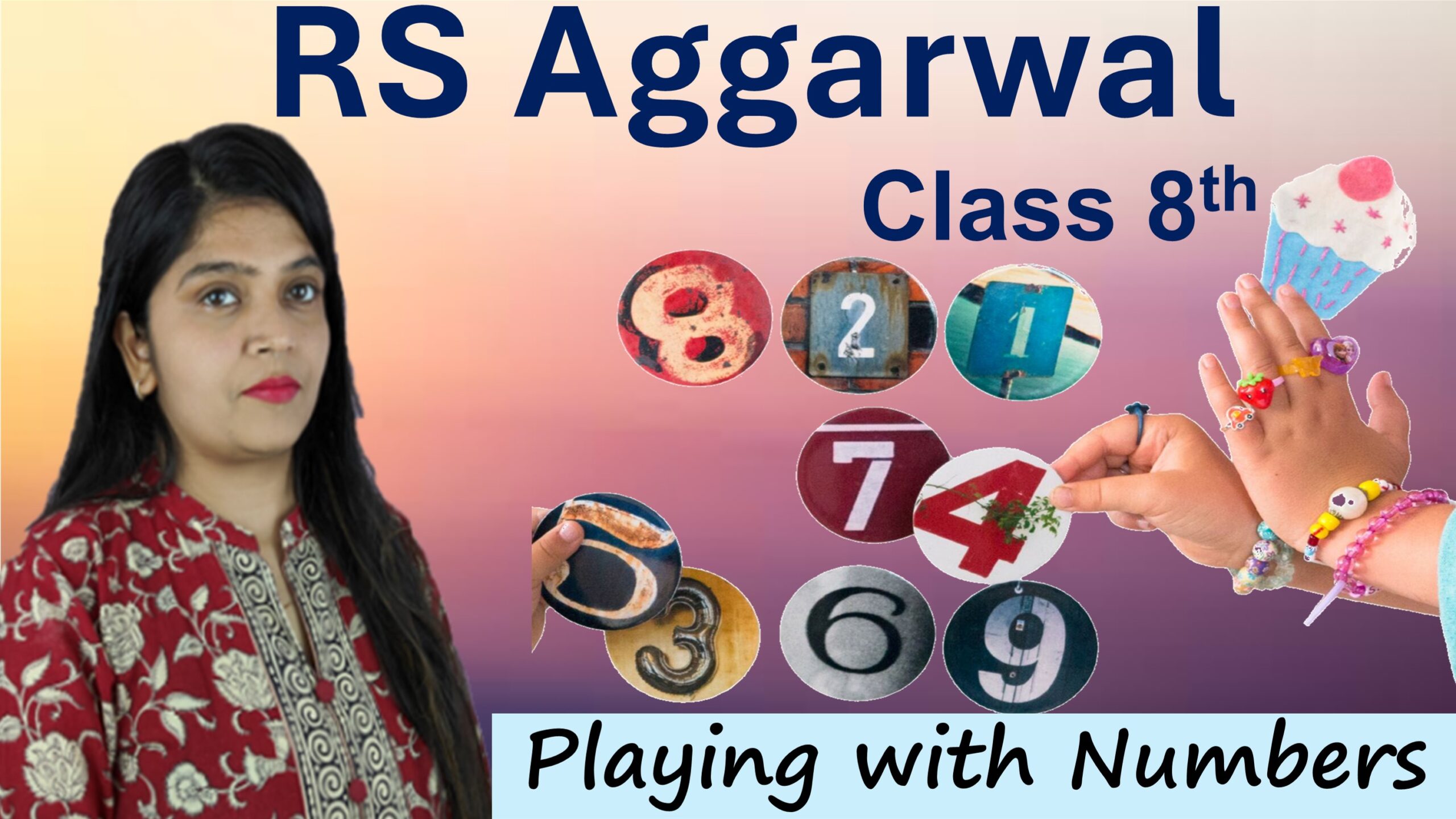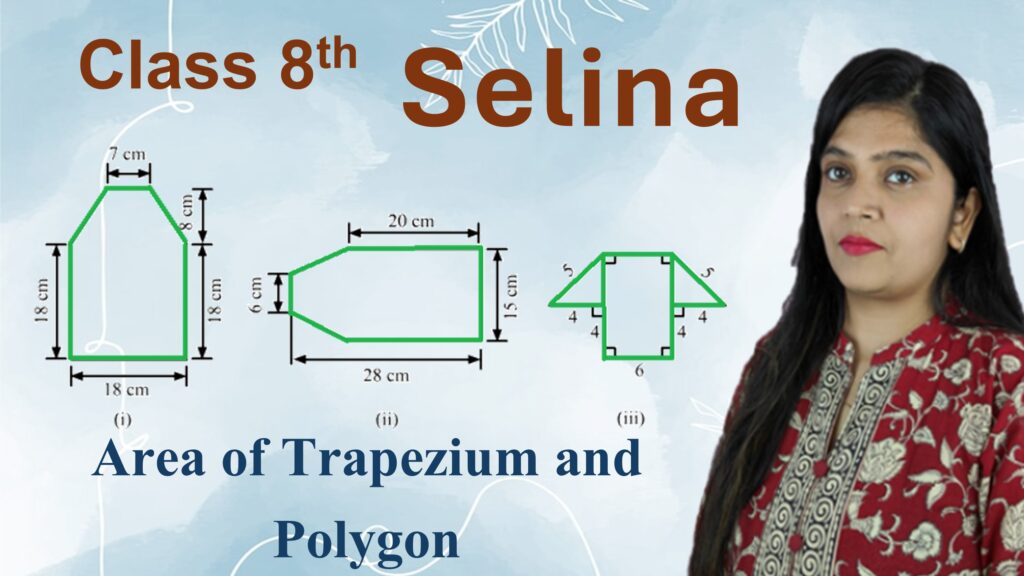Exercise: 4-B
Q1: Test the divisibility of each of the following numbers by 2:
i. 96
Step 1: Check the unit digit of 96 → It is 6.
Step 2: Since 6 is even, 96 is divisible by 2.
Answer: Yes, 96 is divisible by 2.
ii. 830
Step 1: Check the unit digit → 0
Step 2: Since 0 is even, 830 is divisible by 2.
Answer: Yes, 830 is divisible by 2.
iii. 367
Step 1: Unit digit = 7
Step 2: 7 is odd → Not divisible by 2
Answer: No, 367 is not divisible by 2.
iv. 922
Step 1: Unit digit = 2
Step 2: 2 is even → Divisible by 2
Answer: Yes, 922 is divisible by 2.
v. 881
Step 1: Unit digit = 1
Step 2: 1 is odd → Not divisible by 2
Answer: No, 881 is not divisible by 2.
vi. 934
Step 1: Unit digit = 4
Step 2: 4 is even → Divisible by 2
Answer: Yes, 934 is divisible by 2.
vii. 1089
Step 1: Unit digit = 9
Step 2: 9 is odd → Not divisible by 2
Answer: No, 1089 is not divisible by 2.
viii. 13058
Step 1: Unit digit = 8
Step 2: 8 is even → Divisible by 2
Answer: Yes, 13058 is divisible by 2.
Q2: Test the divisibility of each of the following numbers by 3:
Divisibility Rule for 3: A number is divisible by 3 if the sum of its digits is divisible by 3.
i. 258
Sum of digits = 2 + 5 + 8 = 15
15 is divisible by 3 ✅
Answer: Yes, 258 is divisible by 3.
ii. 774
Sum of digits = 7 + 7 + 4 = 18
18 is divisible by 3 ✅
Answer: Yes, 774 is divisible by 3.
iii. 584
Sum of digits = 5 + 8 + 4 = 17
17 is not divisible by 3 ❌
Answer: No, 584 is not divisible by 3.
iv. 1033
Sum of digits = 1 + 0 + 3 + 3 = 7
7 is not divisible by 3 ❌
Answer: No, 1033 is not divisible by 3.
v. 2571
Sum of digits = 2 + 5 + 7 + 1 = 15
15 is divisible by 3 ✅
Answer: Yes, 2571 is divisible by 3.
vi. 6654
Sum of digits = 6 + 6 + 5 + 4 = 21
21 is divisible by 3 ✅
Answer: Yes, 6654 is divisible by 3.
vii. 10385
Sum of digits = 1 + 0 + 3 + 8 + 5 = 17
17 is not divisible by 3 ❌
Answer: No, 10385 is not divisible by 3.
viii. 35742
Sum of digits = 3 + 5 + 7 + 4 + 2 = 21
21 is divisible by 3 ✅
Answer: Yes, 35742 is divisible by 3.
Q3: Test the divisibility of each of the following numbers by 4:
Divisibility Rule for 4: A number is divisible by 4 if the number formed by its last two digits is divisible by 4.
i. 562
Last two digits = 62
Check: \(62 \div 4 = 15.5\) → Not divisible
Answer: No, 562 is not divisible by 4.
ii. 8176
Last two digits = 76
Check: \(76 \div 4 = 19\) → Exact division
Answer: Yes, 8176 is divisible by 4.
iii. 56318
Last two digits = 18
Check: \(18 \div 4 = 4.5\) → Not divisible
Answer: No, 56318 is not divisible by 4.
iv. 35344
Last two digits = 44
Check: \(44 \div 4 = 11\) → Exact division
Answer: Yes, 35344 is divisible by 4.
v. 909032
Last two digits = 32
Check: \(32 \div 4 = 8\) → Exact division
Answer: Yes, 909032 is divisible by 4.
vi. 77752
Last two digits = 52
Check: \(52 \div 4 = 13\) → Exact division
Answer: Yes, 77752 is divisible by 4.
Q4: Test the divisibility of each of the following numbers by 5:
Divisibility Rule for 5: A number is divisible by 5 if it ends in 0 or 5.
i. 1095
Last digit = 5
Ends in 0 or 5 → Yes
Answer: Yes, 1095 is divisible by 5.
ii. 2746
Last digit = 6
Does not end in 0 or 5 → No
Answer: No, 2746 is not divisible by 5.
iii. 8185
Last digit = 5
Ends in 0 or 5 → Yes
Answer: Yes, 8185 is divisible by 5.
iv. 4040
Last digit = 0
Ends in 0 or 5 → Yes
Answer: Yes, 4040 is divisible by 5.
v. 98762
Last digit = 2
Does not end in 0 or 5 → No
Answer: No, 98762 is not divisible by 5.
vi. 77770
Last digit = 0
Ends in 0 or 5 → Yes
Answer: Yes, 77770 is divisible by 5.
Q5: Test the divisibility of each of the following numbers by 8:
Divisibility Rule for 8: A number is divisible by 8 if the number formed by its last three digits is divisible by 8.
i. 7304
Last three digits = 304
Check: \(304 \div 8 = 38\) → Exact division ✅
Answer: Yes, 7304 is divisible by 8.
ii. 8612
Last three digits = 612
Check: \(612 \div 8 = 76.5\) → Not divisible ❌
Answer: No, 8612 is not divisible by 8.
iii. 44440
Last three digits = 440
Check: \(440 \div 8 = 55\) → Exact division ✅
Answer: Yes, 44440 is divisible by 8.
iv. 265472
Last three digits = 472
Check: \(472 \div 8 = 59\) → Exact division ✅
Answer: Yes, 265472 is divisible by 8.
Q6: Test the divisibility of each of the following numbers by 10:
Divisibility Rule for 10: A number is divisible by 10 if it ends in 0.
i. 4005
Last digit = 5
Does not end in 0 → Not divisible by 10 ❌
Answer: No, 4005 is not divisible by 10.
ii. 30303
Last digit = 3
Does not end in 0 → Not divisible by 10 ❌
Answer: No, 30303 is not divisible by 10.
iii. 64610
Last digit = 0
Ends in 0 → Divisible by 10 ✅
Answer: Yes, 64610 is divisible by 10.
iv. 85730
Last digit = 0
Ends in 0 → Divisible by 10 ✅
Answer: Yes, 85730 is divisible by 10.
Q7: Test the divisibility of each of the numbers by 11:
Divisibility Rule for 11: Find the alternating sum of the digits (i.e., subtract and add digits in alternate positions from left to right). If the result is divisible by 11 (including 0), then the number is divisible by 11.
i. 1452
Digits: 1, 4, 5, 2
Alternating sum = 1 – 4 + 5 – 2 = 0
0 is divisible by 11 ✅
Answer: Yes, 1452 is divisible by 11.
ii. 9416
Digits: 9, 4, 1, 6
Alternating sum = 9 – 4 + 1 – 6 = 0
0 is divisible by 11 ✅
Answer: Yes, 9416 is divisible by 11.
iii. 818532
Digits: 8, 1, 8, 5, 3, 2
Alternating sum = 8 – 1 + 8 – 5 + 3 – 2 = 11
11 is divisible by 11 ✅
Answer: Yes, 818532 is divisible by 11.
iv. 84524
Digits: 8, 4, 5, 2, 4
Alternating sum = 8 – 4 + 5 – 2 + 4 = 11
11 is divisible by 11 ✅
Answer: Yes, 84524 is divisible by 11.
Q8: Find all possible values of x for which the number 534×2 is divisible by 3. Also, find each such number.
Divisibility Rule for 3: A number is divisible by 3 if the sum of its digits is divisible by 3.
Let the number be 534×2.
Digits: 5, 3, 4, x, 2
Sum = 5 + 3 + 4 + x + 2 = 14 + x
We want \(14 + x\) to be divisible by 3.
Step 1: Try values of \(x\) from 0 to 9:
If \(x = 0\): 14 + 0 = 14 → Not divisible by 3 ❌
If \(x = 1\): 14 + 1 = 15 → Divisible by 3 ✅ → Number: 53412
If \(x = 2\): 14 + 2 = 16 → Not divisible by 3 ❌
If \(x = 3\): 14 + 3 = 17 → Not divisible by 3 ❌
If \(x = 4\): 14 + 4 = 18 → Divisible by 3 ✅ → Number: 53442
If \(x = 5\): 14 + 5 = 19 → Not divisible by 3 ❌
If \(x = 6\): 14 + 6 = 20 → Not divisible by 3 ❌
If \(x = 7\): 14 + 7 = 21 → Divisible by 3 ✅ → Number: 53472
If \(x = 8\): 14 + 8 = 22 → Not divisible by 3 ❌
If \(x = 9\): 14 + 9 = 23 → Not divisible by 3 ❌
Step 2: Valid values of \(x\): 1, 4, 7
Step 3: Corresponding numbers:
→ 53412
→ 53442
→ 53472
Answer: The possible values of \(x\) are 1, 4, and 7.
The corresponding numbers divisible by 3 are 53412, 53442, and 53472.
Q9: Find the least number which should replace * in the number 89 * 2 to make it exactly divisible by:
i. 3
Divisibility Rule for 3: A number is divisible by 3 if the sum of its digits is divisible by 3.
Digits in the number = 8, 9, *, 2
Sum = 8 + 9 + * + 2 = 19 + *
We want \(19 + *\) to be divisible by 3.
Try digits from 0 to 9:
If * = 0 → 19 + 0 = 19 → Not divisible by 3 ❌
If * = 1 → 19 + 1 = 20 → Not divisible by 3 ❌
If * = 2 → 19 + 2 = 21 → ✅ Divisible by 3 → Number: 8922
If * = 3 → 22 → ❌
If * = 4 → 23 → ❌
If * = 5 → 24 → ✅ → 8952
If * = 6 → 25 → ❌
If * = 7 → 26 → ❌
If * = 8 → 27 → ✅ → 8982
If * = 9 → 28 → ❌
Answer: The least digit to make 89*2 divisible by 3 is 2.
The number is 8922.
ii. 9
Divisibility Rule for 9: A number is divisible by 9 if the sum of its digits is divisible by 9.
Again, sum = 8 + 9 + * + 2 = 19 + *
We want \(19 + *\) to be divisible by 9.
Try values from 0 to 9:
If * = 0 → 19 → ❌
If * = 1 → 20 → ❌
If * = 2 → 21 → ❌
If * = 3 → 22 → ❌
If * = 4 → 23 → ❌
If * = 5 → 24 → ❌
If * = 6 → 25 → ❌
If * = 7 → 26 → ❌
If * = 8 → 27 → ✅ → Number: 8982
If * = 9 → 28 → ❌
Answer: The least digit to make 89*2 divisible by 9 is 8.
The number is 8982.
Q10: Find the value of z for which the number 417 z 8 is divisible by 9. Also, find the number.
Divisibility Rule for 9: A number is divisible by 9 if the sum of its digits is divisible by 9.
Digits in the number = 4, 1, 7, z, 8
Sum = 4 + 1 + 7 + z + 8 = 20 + z
We want \(20 + z\) to be divisible by 9.
Step 1: Try values of \(z\) from 0 to 9:
If \(z = 0\): 20 + 0 = 20 ❌
If \(z = 1\): 20 + 1 = 21 ❌
If \(z = 2\): 22 ❌
If \(z = 3\): 23 ❌
If \(z = 4\): 24 ❌
If \(z = 5\): 25 ❌
If \(z = 6\): 26 ❌
If \(z = 7\): 27 ✅ (27 ÷ 9 = 3) → Divisible
Step 2: Substitute \(z = 7\) into the number → 41778
Answer: The value of \(z\) is 7.
The number is 41778, which is divisible by 9.
Q11: Give five examples of numbers, each one of which is divisible by 3 but not divisible by 9.
Divisibility Rule for 3: A number is divisible by 3 if the sum of its digits is divisible by 3.
Divisibility Rule for 9: A number is divisible by 9 if the sum of its digits is divisible by 9.
We need numbers whose digit sum is divisible by 3 but not divisible by 9.
Step 1: Try numbers and check their digit sum:
1. Number: 12
Digit sum = 1 + 2 = 3 → divisible by 3 ✅, not divisible by 9 ❌
2. Number: 15
Digit sum = 1 + 5 = 6 → divisible by 3 ✅, not divisible by 9 ❌
3. Number: 21
Digit sum = 2 + 1 = 3 → divisible by 3 ✅, not divisible by 9 ❌
4. Number: 24
Digit sum = 2 + 4 = 6 → divisible by 3 ✅, not divisible by 9 ❌
5. Number: 30
Digit sum = 3 + 0 = 3 → divisible by 3 ✅, not divisible by 9 ❌
Step 2: Final List:
→ 12
→ 15
→ 21
→ 24
→ 30
Answer: Five such numbers are: 12, 15, 21, 24, and 30.
Each is divisible by 3 but not divisible by 9.
Q12: Give five examples of numbers, each one of which is divisible by 4 but not divisible by 8.
Divisibility Rule for 4: A number is divisible by 4 if the last two digits form a number divisible by 4.
Divisibility Rule for 8: A number is divisible by 8 if the last three digits form a number divisible by 8.
We need numbers that are divisible by 4 ✅ but not divisible by 8 ❌.
Step 1: Try numbers that are multiples of 4 but not multiples of 8:
1. Number: 12
→ \(12 \div 4 = 3\) ✅
→ \(12 \div 8 = 1.5\) ❌
2. Number: 20
→ \(20 \div 4 = 5\) ✅
→ \(20 \div 8 = 2.5\) ❌
3. Number: 28
→ \(28 \div 4 = 7\) ✅
→ \(28 \div 8 = 3.5\) ❌
4. Number: 36
→ \(36 \div 4 = 9\) ✅
→ \(36 \div 8 = 4.5\) ❌
5. Number: 44
→ \(44 \div 4 = 11\) ✅
→ \(44 \div 8 = 5.5\) ❌
Step 2: Final List:
→ 12
→ 20
→ 28
→ 36
→ 44
Answer: Five such numbers are: 12, 20, 28, 36 and 44.
Each is divisible by 4 but not divisible by 8.






Leave a Comment